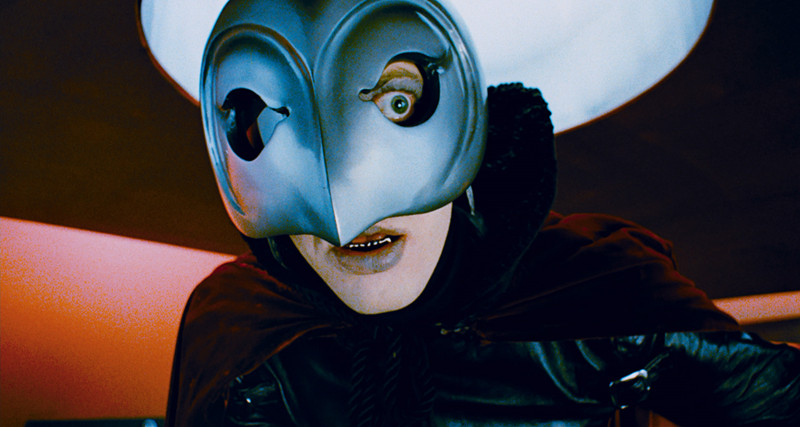
“God help us –– for art is long, and life so short.”
― Johann Wolfgang von Goethe, “Faust”
Paradise lost
The tinny, distorted, and decidedly soulless warble of background Muzak –– a butchering of The Beatles classic “A Day in the Life’ –– announced itself sneakily to Brian De Palma one day in 1969 as he stood in an elevator.
The notion that something so recognizably beautiful, inventive and bona fide as a prized Beatles favorite could be perverted and commercialized into something so banal and gaudy matched De Palma’s personal experiences being gnashed and swallowed in the corporate machine, and thus the seeds for Phantom of the Paradise were sown.
It wouldn’t be until Sisters (1973), his first real success and also first stab at psychological horror in a Hitchcockian vein, that De Palma would make good on his strange premise of a rowdy, playful, sarcastic, and seemingly out-of-control rock opera, one that would give new urgency and meaning to the term “meta”.
“Brian De Palma has an original comic temperament; he’s drawn to rabid visual exaggeration and to sophisticated slapstick comedy… [Phantom of the Paradise] is a one-of-a-kind entertainment, with a kinetic, breakneck wit.”
― Pauline Kael
The hell of it
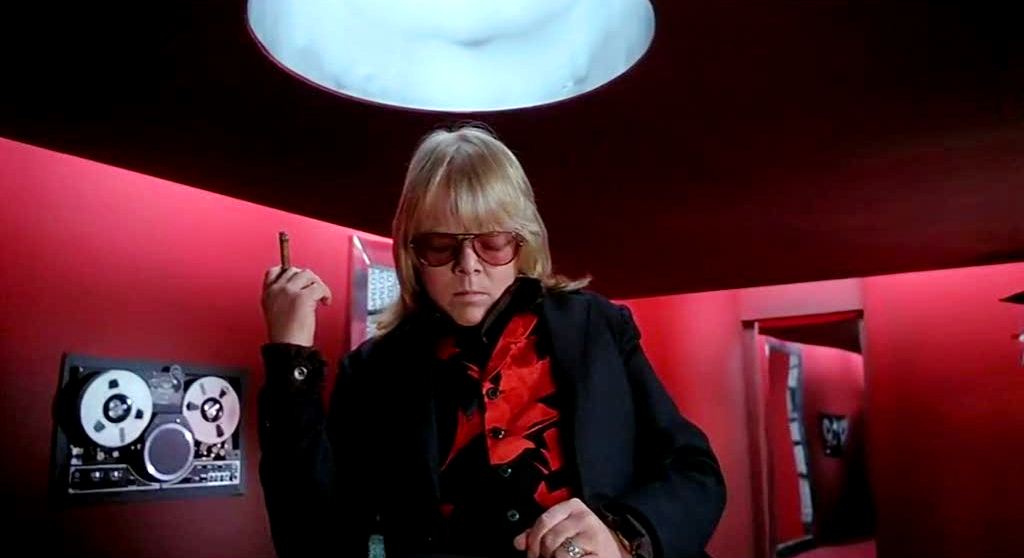
Altogether more depraved, and perverse, and side-splitting than The Rocky Horror Picture Show or Tommy –– both of which came out a year AFTER this film –– Phantom of the Paradise is as stylishly excessive and as deliriously over-the-top as anything De Palma’s ever done.
A musical mashup of The Phantom of the Opera and Faust, it’s also a playful piss-take on pop music that takes the inspired form of the ultimate midnight movie.
Fusing elements of Edgar Allan Poe, The Picture of Dorian Gray, silent comedies (The Keystone Cops come joyously to mind), the Marx Brothers, and as many cinematic citations as De Palma could marshal as well as satirizing every musical genre at the time –– Beef (a brilliant Gerrit Graham) the coke-snortin’ glam rock prima donna modelled somewhat on Jobriath and Ziggy Stardust-era David Bowie, is a blast, while Paul Williams’ inspired turn as Swan, an evil svengali impresario à la Phil Spector is nothing short of iconic.
And Paul Williams really cannot get enough credit for his astonishingly complex, endlessly imaginative and silvery soundtrack. At least his efforts were acknowledged in the form of Academy Award and Golden Globe nominations
Who holds the devil, let him hold him well
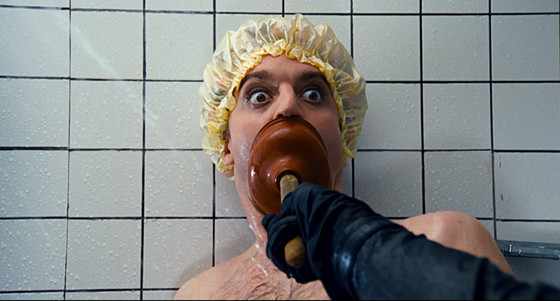
Shot primarily in Dallas, at the Majestic, a largely discarded and disused movie palace, Phantom of the Paradise ostensibly tells the sordid tale of talented hangdog musician Winslow Leach (William Finley, fantastic).
Winslow writes a lush and sophisticated cantata which is overheard by a mysterious and vainglorious record producer, the feared and revered Swan.
With cunning and contemptuousness Swan easily manipulates Winslow into surrendering his music and then disavows him, barring him from his estate and his music empire.
Soon Winslow is framed and finds himself in Sing Sing where his troubles seem to really begin. Before long Winslow has escaped the slammer, but is disfigured and haunts the labyrinthine environs of Swan’s latest and most regal of venues, the Paradise Theater. An impenetrable plot ensues that will allow for revenge and reparation, but of course, at a terrible cost.
Sewn into the story is the debauched Grand Guignol behind-the-scenes world of rock star excess, compete with promiscuous groupies assailed by roadies and moguls, and somewhere in there is the wide-eyed, and well-intentioned ingenue Phoenix (Jessica Harper, magnificent), the beauty to Winslow’s beast.
My music is for Phoenix. Only she can sing it. Anyone else who tries, dies!
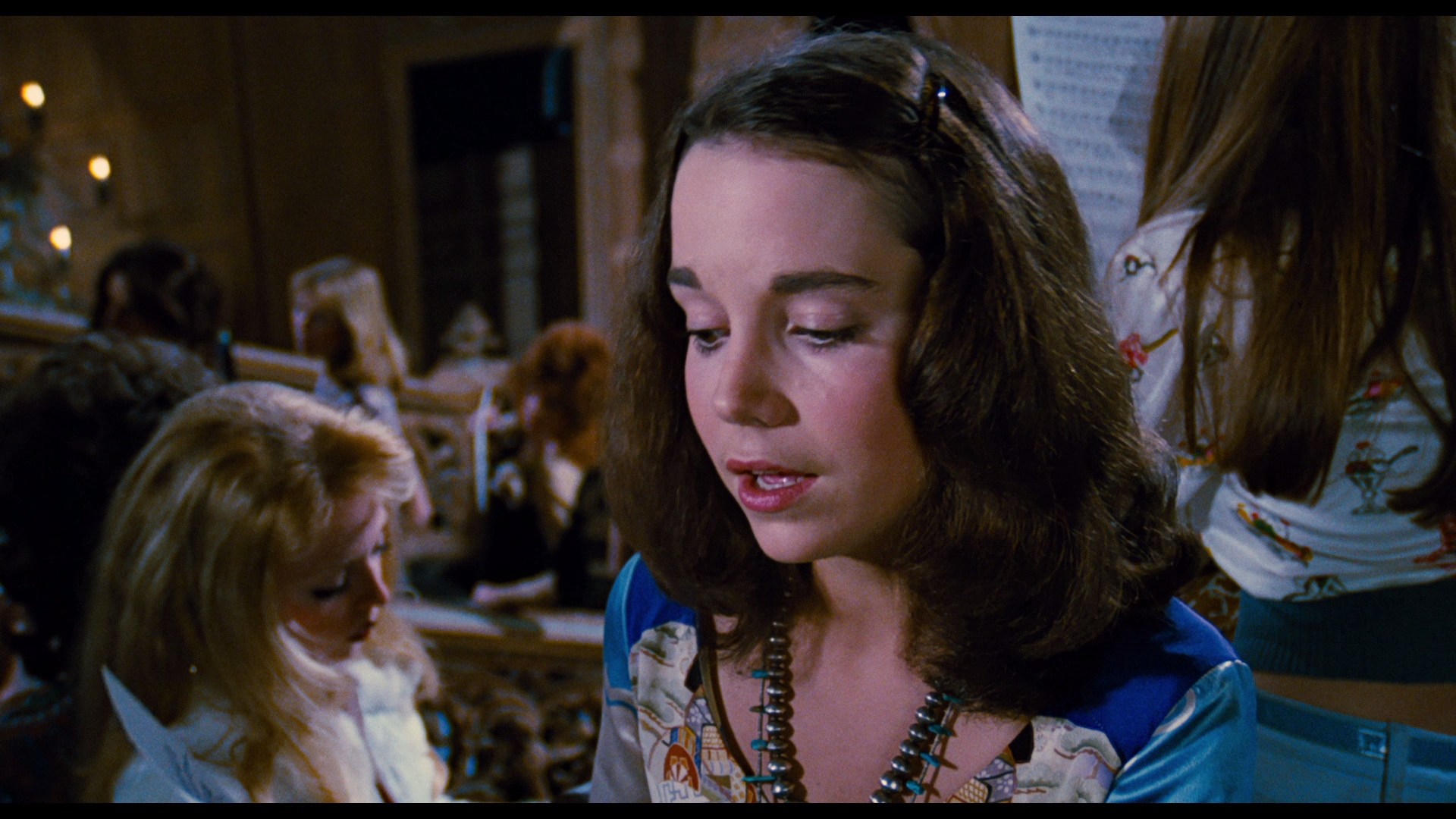
As the drama unfolds De Palma steps up, and adoringly pastiches his hero, Alfred Hitchcock –– particularly in his impressive use of long takes, point-of-view shots, as well as a Psycho-done-silly shower scene.
His inspired use of TV screens recalls John Frankenheimer’s Manchurian Candidate (1962), and there’s an incredibly clever tribute to the famous opening tracking shot from Orson Welles’ Touch of Evil (1958), only with De Palma’s signature split screen tossed in for added oomph and excitement.
The miscellany approach of melding different cinematic paradigms isn’t a string of ripoffs at all, it works more rhapsodic then that, like lilting vignettes in a gothic aria. Strange, but well suited to a rock opera arrangement.
“Fox had no idea how to promote [Phantom of the Paradise], because it couldn’t be categorized… The reason Fox found it unwieldy — the scabrous humor about the music industry, the unhappy love story and the weirdness of some of the characters — are exactly the reasons why people love it now.”
― Gerrit Graham
Life at last
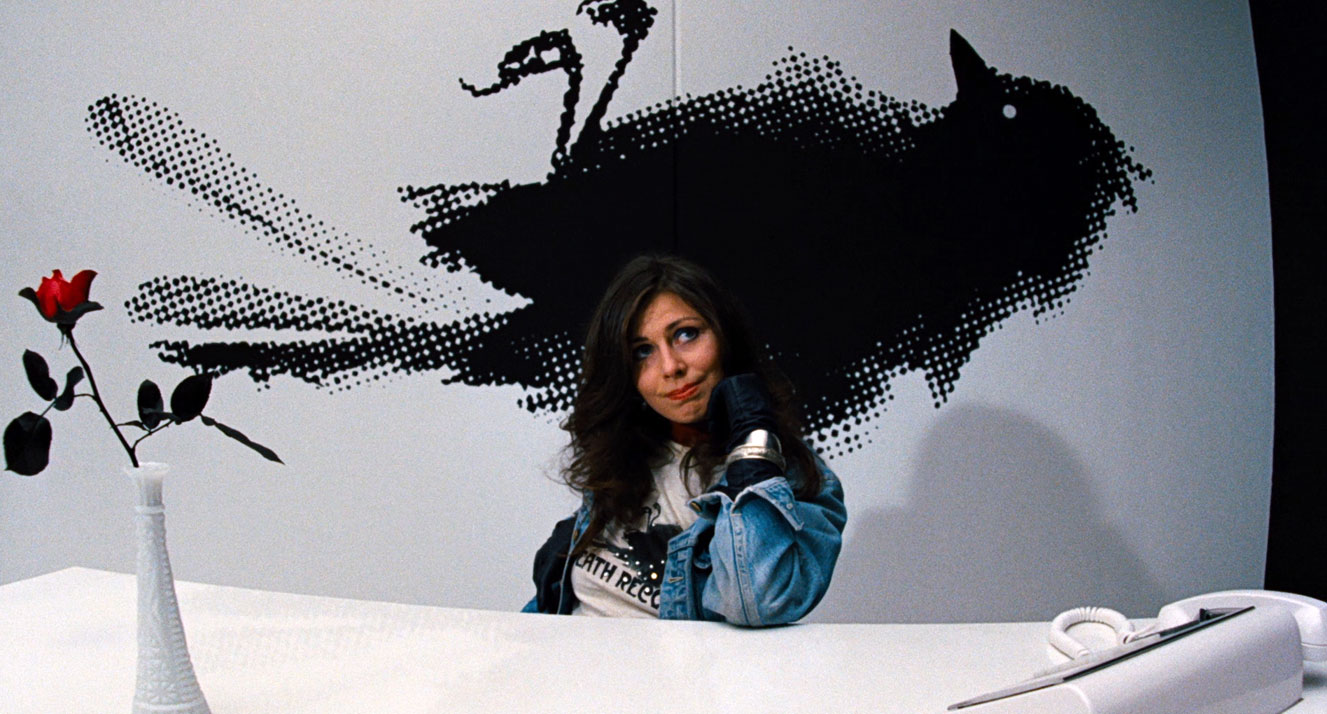
A precursor to the modern music video and exemplar of late-night liturgy this is a movie that has accrued a rabid following, particularly in wintry Winnipeg, for some strange and awesome reason. In fact, when Phantom originally opened back in ‘74 it bombed everywhere except for L.A., Paris, and Winnipeg. Go figure.
The cult for Phantom of the Paradise is by no means limited to just Winnipeg of course, though a forthcoming documentary by Malcolm Ingram entitled Phantom of Winnipeg is sure to present a thorough treatise on this phenomenon.
Other admirers of the movie include shock-rocker Marilyn Manson, who has basically ascribed his fashion template from Finley’s glammed-out and artfully disfigured Phantom –– complete with metal teeth, and a knife-edged microphone like the one used by The Undeads late in the film.
The French electronic duo Daft Punk (Guy-Manuel de Homem-Christo and Thomas Bangalter) claim to have seen Phantom more than twenty times on the big screen in their formative years, and owe their helmeted appearance and black leather garb to their favorite antihero.
Other enthusiastic admirers include “American Psycho” scribe Bret Easton Ellis, Quentin Tarantino, and Guillermo del Toro (del Toro and his wife danced to the Phantom number “Old Souls” at their wedding), and Edgar Wright, who openly pays tribute to the film in all of his movies, particularly Scott Pilgrim vs. the World (2010).
“I first saw William Finley in Phantom of the Paradise when I was 12 on British television. It made an indelible mark on me, not least because of Finley’s amazing twin performance as Winslow Leach and the Phantom. It was one of those unique characterizations that absolutely embodies the spirit of the movie.”
― Edgar Wright
I am the spirit that negates
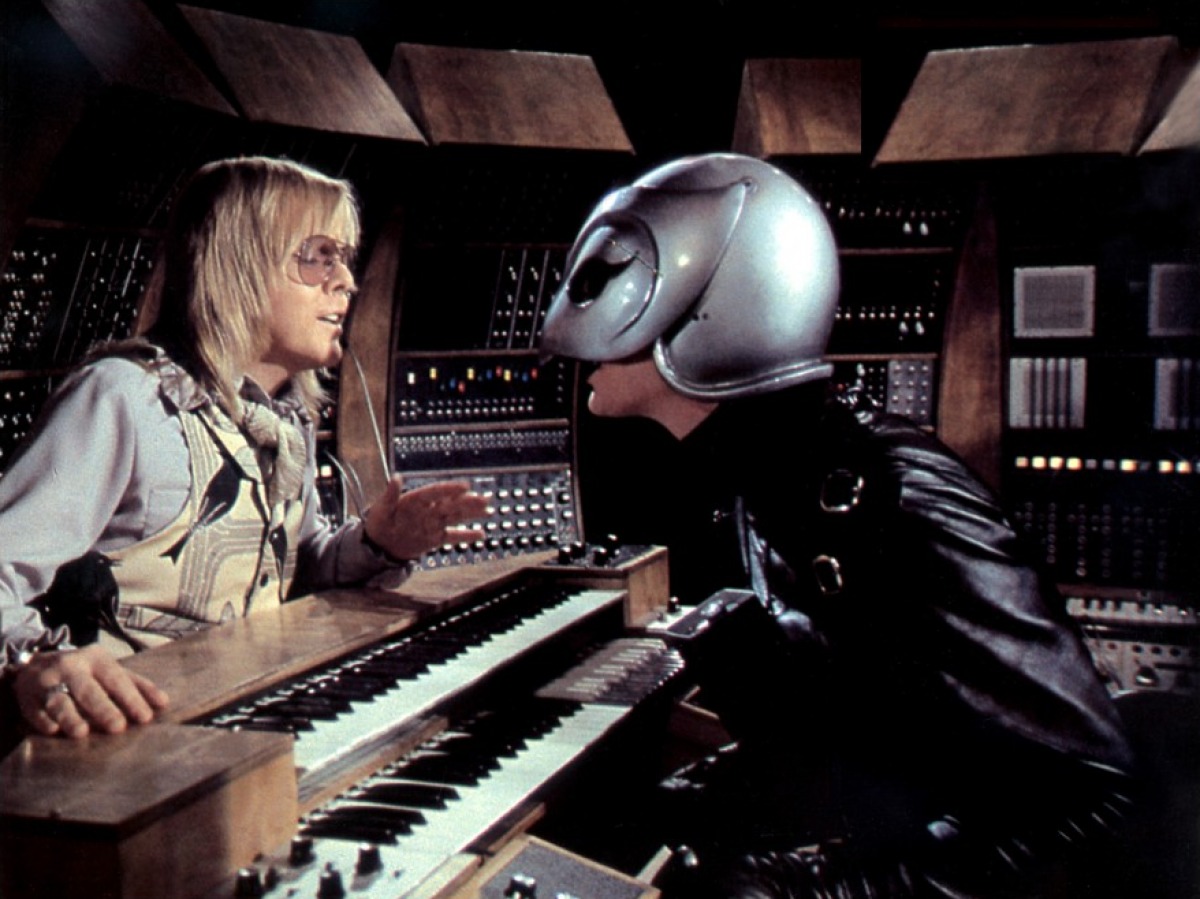
Finley’s Phantom, as Wright suggests, typifies the film spectacularly. His performance combines the “slapstick expressionism” that Pauline Kael found so entrancing, as well as being sentimental enough to evoke the transcendency of Lon Chaney.
Finley was already an established part of De Palma’s repertory, the role was written with him in mind, and so it shouldn’t be any wonder that we was meant for the role.
De Palma and Finley had been in cahoots since the early 1960s when they met and made student films together, and all told, when Finley passed away in 2012 at age 71, he had appeared in nine of De Palma’s films. Their run together was legendary, it must be said.
The much ballyhooed New Hollywood of the 1970s sired many enterprising cinematic curiosities but few as exhilarating, outlandish and impressively stylish as Phantom of the Paradise.
For all its crackbrained exuberance and frequently hallucinatory tenor, it never fully fell prey to cynicism, perhaps because it’s so very obviously a labor of love. That and it already, by midnight movie standards and beyond, is some kind of masterpiece.
Author Bio: Shane Scott-Travis is a film critic, screenwriter, comic book author/illustrator and cineaste. Currently residing in Vancouver, Canada, Shane can often be found at the cinema, the dog park, or off in a corner someplace, paraphrasing Groucho Marx. Follow Shane on Twitter @ShaneScottravis.